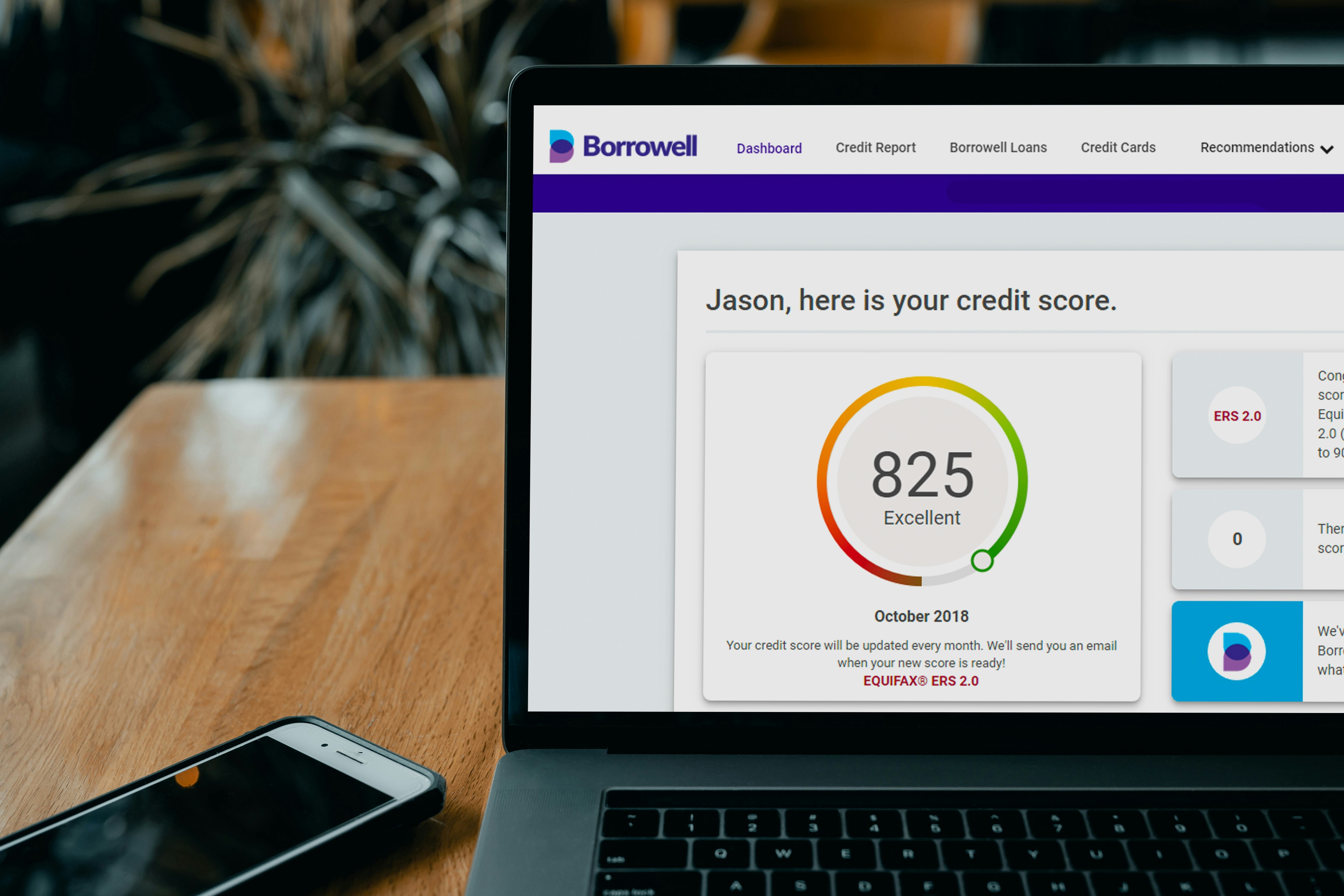Startup Accelerator: 7 Shocking Pros & Cons for Rapid Growth or Ruin!

Table of Contents
Description: Explore 7 surprising pros & cons of startup accelerators. Learn if these programs are a boost or a potential bust for your business.
Navigating the tumultuous waters of launching a new venture can feel like an endless uphill battle. In this challenging landscape, startup accelerators emerge as beacons of hope, promising mentorship, funding opportunities, and a fast track to growth. However, are these programs the magic bullet they appear to be, or could they potentially hinder your progress? This in-depth exploration delves into 7 shocking pros and cons of startup accelerators, providing crucial insights for entrepreneurs in India, the USA, the UK, France, and Germany, helping you determine if one is the right path for your ambitious startup.
Understanding the Allure of the Startup Accelerator

Before diving into the specifics, it’s essential to understand what a startup accelerator truly is. These are typically fixed-term, cohort-based programs that aim to rapidly scale early-stage companies. They usually offer a blend of mentorship, workshops, networking events, and sometimes seed funding in exchange for equity. The intensive nature of these programs is designed to condense months, if not years, of typical startup development into a focused period, often around 3 to 6 months.
Global Landscape of the Startup Accelerator
The startup accelerator landscape is vibrant and diverse across the globe, with different regions exhibiting unique characteristics and focus areas.
- India: India has witnessed a significant surge in the number of startup accelerators in recent years, fueled by a burgeoning startup ecosystem and government initiatives promoting entrepreneurship. These accelerators often focus on sectors like e-commerce, fintech, agritech, and healthcare, catering to the specific needs and opportunities within the Indian market. They play a crucial role in nurturing early-stage startups and connecting them with investors. According to a report by Inc42, India had over 400 active startup accelerators and incubators in 2023, demonstrating the rapid growth of this support system. Many Indian startup accelerators are sector-specific, addressing challenges unique to the Indian context.
- USA: The United States boasts the most mature and competitive startup accelerator market globally. Silicon Valley remains the epicenter, but thriving hubs exist across the country. US startup accelerators are known for their rigorous selection processes, access to vast networks of venture capitalists, and a strong emphasis on innovation and scalability. Programs like Y Combinator and Techstars are globally recognized for their high success rates. In 2023, the US saw significant investment flowing into startup accelerator graduates, highlighting their continued importance in the American startup ecosystem. The focus areas are diverse, ranging from software and biotechnology to clean energy and artificial intelligence.
- UK: The UK has a well-established startup accelerator ecosystem, particularly concentrated in London but with growing activity in other major cities. These programs often benefit from strong government support and close ties to the financial sector. UK startup accelerators cater to a wide range of industries, including fintech, creative technology, and sustainability. They provide access to European markets and international investors. According to a report by Beauhurst, the UK witnessed a steady increase in the number of startup accelerator programs and the amount of funding raised by their cohorts in recent years. A key focus for many UK startup accelerators is on fostering innovation with social or environmental impact.
- France: The French startup accelerator scene has been gaining momentum, driven by government initiatives and a growing entrepreneurial culture. Paris is the central hub, but regional accelerators are also emerging. French startup accelerators often emphasize deep tech, artificial intelligence, and creative industries. They provide access to European funding and a strong network of corporate partners. La French Tech, a government-backed initiative, plays a significant role in promoting and supporting the growth of startup accelerators across France. Many French startup accelerators focus on helping startups scale internationally.
- Germany: Germany’s startup accelerator landscape is characterized by a strong focus on industrial technology, engineering, and digital transformation. Berlin is a major hub, but other cities like Munich and Hamburg also have thriving ecosystems. German startup accelerators often have close ties to established corporations, facilitating pilot projects and market access for startups. They emphasize a structured and methodical approach to startup development. According to a report by the German Startup Association, the number of startup accelerators in Germany has steadily increased, reflecting the growing importance of these programs in fostering innovation and economic growth. A significant number of German startup accelerators focus on business-to-business (B2B) solutions.
Key Differences Across Regions for a Startup Accelerator
While the fundamental goal of a startup accelerator remains the same – to accelerate the growth of early-stage companies – there are notable differences across these regions:
- Focus Sectors: India often sees a concentration on sectors relevant to its large domestic market and specific challenges, while the US has a broader focus driven by cutting-edge technological innovation. The UK emphasizes fintech and creative tech, France focuses on deep tech and AI, and Germany leans towards industrial tech and B2B solutions.
- Funding Landscape: Access to follow-on funding varies significantly. US startup accelerators often provide a direct pipeline to large venture capital firms, while in other regions, the funding landscape might be more reliant on government grants, angel investors, and corporate venture arms.
- Mentorship Networks: The quality and focus of mentorship networks can differ. US accelerators often boast mentors with extensive experience in scaling global tech companies, while in other regions, the mentor pool might include more local entrepreneurs and industry experts.
- Program Structure: While most startup accelerators follow a cohort-based model, the intensity, duration, and specific components of the programs can vary. Some might place a greater emphasis on workshops and education, while others prioritize networking and investor introductions.
Understanding these regional nuances is crucial for startups considering joining a startup accelerator, as it can significantly impact their experience and outcomes. Choosing an accelerator that aligns with your sector, growth stage, and target market is paramount.
The Tempting Advantages: Pros of Joining a Startup Accelerator
For many aspiring entrepreneurs, the allure of a startup accelerator is strong, and for good reason. These programs offer a multitude of potential benefits that can significantly impact a young company’s trajectory.
1. Rapid Learning and Skill Development within the Startup Accelerator
One of the most significant advantages of joining a startup accelerator is the compressed learning curve. Through intensive workshops, seminars, and one-on-one mentorship sessions, founders gain invaluable knowledge across various critical business functions.
- Business Model Refinement: Startup accelerators often push founders to rigorously analyze and refine their business models, identifying potential flaws and opportunities for improvement. This intense scrutiny can help avoid costly mistakes down the line. In India, for example, accelerators often help startups adapt their models to the unique challenges and opportunities of the Indian market, such as diverse consumer behavior and logistical hurdles.
- Product Development Strategies: Guidance on agile development methodologies, user feedback integration, and prioritization of features is a common element in startup accelerator programs. This ensures that the product or service is aligned with market needs. US accelerators often emphasize rapid prototyping and iterative development based on data-driven insights.
- Marketing and Sales Tactics: Startups learn effective marketing strategies, including digital marketing, content creation, and social media engagement. They also receive training on sales techniques, customer acquisition, and building a strong brand. UK accelerators, with their strong focus on creative technology, often provide valuable insights into innovative marketing approaches.
- Financial Management and Fundraising: Understanding financial statements, managing cash flow, and preparing for fundraising are crucial skills imparted by startup accelerators. Founders receive guidance on valuation, pitch deck creation, and navigating the investment landscape. French accelerators often connect startups with European funding sources and provide specific training on French financial regulations.
- Legal and Operational Aspects: Many startup accelerators provide access to legal advice on incorporation, intellectual property, and contracts. They also offer guidance on building efficient operational processes. German accelerators, known for their structured approach, often provide detailed frameworks for operational efficiency and compliance.
The sheer volume of information and the intensity of the learning environment within a startup accelerator can equip founders with a robust skillset in a relatively short period, accelerating their professional development and the growth of their startup accelerator-backed ventures.
2. Valuable Networking Opportunities within the Startup Accelerator
Beyond the formal curriculum, startup accelerators provide unparalleled networking opportunities. These connections can be instrumental in a startup’s success.
- Mentorship from Experienced Entrepreneurs and Industry Experts: Access to seasoned entrepreneurs, industry veterans, and successful investors is a cornerstone of most startup accelerator programs. Mentors provide invaluable guidance, share their experiences, and offer critical feedback. In India, mentors often have deep understanding of the local market dynamics and can provide culturally relevant advice.
- Connections with Investors and Funding Sources: Startup accelerators often culminate in a demo day or investor pitch event, providing a platform for startups to present their ventures to potential investors, including angel investors, venture capitalists, and corporate venture arms. US accelerators, particularly in Silicon Valley, offer direct access to a vast network of prominent venture capital firms.
- Peer Support and Collaboration within the Cohort: Being part of a cohort of like-minded entrepreneurs creates a supportive and collaborative environment. Founders can share experiences, learn from each other’s challenges and successes, and potentially find synergistic partnerships. UK accelerators often foster a strong sense of community within their cohorts, encouraging collaboration and knowledge sharing.
- Access to Alumni Networks: Startup accelerator alumni networks can be a powerful resource, providing ongoing support, connections, and opportunities for collaboration and knowledge exchange long after the program concludes. French accelerators are increasingly focusing on building strong and active alumni networks.
- Industry Connections and Partnerships: Some startup accelerators have partnerships with established corporations, providing opportunities for pilot projects, potential acquisitions, and access to corporate resources and market channels. German accelerators, with their strong ties to the industrial sector, often facilitate connections with relevant corporate partners.
These networking opportunities within a startup accelerator can open doors that might otherwise remain closed, providing crucial support and resources for growth.
3. Access to Seed Funding and Investment within the Startup Accelerator
While not all startup accelerators provide direct funding, many offer seed funding in exchange for equity. Even those that don’t typically help startups become more investment-ready and facilitate introductions to potential investors.
- Direct Seed Investment: Many reputable startup accelerators provide an initial capital injection, which can be crucial for early-stage startups to develop their product, build a minimum viable product (MVP), and gain initial traction. The amount of investment varies depending on the accelerator and its focus. In the US, some top-tier accelerators provide significant seed funding as part of their program.
- Increased Investment Readiness: This helps startups refine their business plans, financial projections, and pitch decks, making them more attractive to potential investors. The rigorous feedback and mentorship received during the program significantly enhance a startup’s investment readiness. UK accelerators often have specific modules focused on preparing startups for fundraising.
- Facilitated Introductions to Investors: As mentioned earlier, startup accelerators often organize demo days and investor events, providing a platform for startups to pitch to a curated audience of relevant investors. This can significantly streamline the fundraising process. French accelerators actively connect their cohorts with both domestic and international investors.
- Validation and Signaling Effect: Acceptance into a reputable accelerator can act as a form of validation for a startup, signaling its potential to investors and increasing its credibility. This “stamp of approval” can make it easier to attract subsequent funding rounds. German accelerators, known for their thorough selection processes, provide a strong validation signal.
- Follow-on Funding Opportunities: Some accelerators have dedicated follow-on funds or strong relationships with venture capital firms that actively invest in their alumni. This can provide a pathway to larger funding rounds as the startup scales. Indian accelerators are increasingly seeing their successful graduates attract significant follow-on investment.
Access to funding and the support in becoming investment-ready are significant draws for startups considering a startup accelerator.
4. Accelerated Growth and Market Validation
The intensive nature of startup accelerator programs is designed to accelerate a startup’s growth and help validate its market potential.
- Focused Goal Setting and Execution: Startup accelerators typically set clear milestones and expectations for their cohorts, fostering a culture of focused execution and rapid progress. The structured environment helps startups stay on track and achieve significant growth within a short timeframe. US accelerators are known for their demanding schedules and emphasis on achieving rapid growth metrics.
- Access to Resources and Infrastructure: Many startup accelerators provide access to shared office spaces, technology infrastructure, and other resources that can help startups operate efficiently and cost-effectively. This can be particularly beneficial for early-stage companies with limited resources. UK accelerators often provide co-working spaces and access to specialized equipment.
- Rapid Prototyping and Iteration: The emphasis on user feedback and agile development within startup accelerators facilitates rapid prototyping and iteration, allowing startups to quickly adapt their product or service based on market response. French accelerators often encourage a lean startup methodology with rapid experimentation.
- Early Customer Acquisition and Market Feedback: Startup accelerators often provide guidance and support in early customer acquisition and market testing. The intense environment encourages startups to quickly validate their value proposition and gather crucial market feedback. German accelerators, with their strong focus on B2B solutions, often facilitate introductions to potential early customers.
- Increased Brand Visibility and Credibility: Participation in a reputable startup accelerator can increase a startup’s visibility within the industry and enhance its credibility with potential customers, partners, and investors. The association with a well-known accelerator can open doors and build trust. Indian accelerators are increasingly gaining recognition, and their alumni are seeing enhanced brand visibility.
The accelerated growth and market validation achieved during a startup accelerator program can provide a significant competitive advantage.
5. Strategic Guidance and Mentorship Tailored for the Startup Accelerator
The mentorship provided by startup accelerators is often highly strategic and tailored to the specific challenges faced by early-stage companies.
- Experienced Guidance on Business Strategy: Mentors with a proven track record can provide invaluable guidance on developing a robust business strategy, identifying target markets, and creating a sustainable competitive advantage. US accelerators boast mentors with deep experience in scaling successful tech companies.
- Industry-Specific Expertise: Many startup accelerators recruit mentors with specific expertise in the industries relevant to their cohorts. This allows startups to receive tailored advice on navigating industry-specific challenges and opportunities. UK accelerators often have mentors with expertise in their focus sectors, such as fintech or creative tech.
- Personalized Feedback and Accountability: Mentors provide personalized feedback on the startup’s progress, identify areas for improvement, and hold founders accountable for achieving their goals. This direct and consistent feedback can be crucial for course correction and growth. French accelerators often pair startups with mentors who provide regular and constructive feedback.
- Access to a Diverse Range of Perspectives: Startup accelerators often bring together mentors with diverse backgrounds and experiences, providing founders with a range of perspectives on their business and potential challenges. German accelerators often involve mentors from both the startup ecosystem and established corporations.
- Long-Term Relationships and Support: While the formal mentorship within a startup accelerator has a defined duration, many mentor-mentee relationships continue long after the program concludes, providing ongoing support and guidance as the startup grows. Indian accelerators are seeing the emergence of strong long-term mentorship relationships.
The strategic guidance and mentorship offered by startup accelerators can be a game-changer for early-stage founders navigating the complexities of building a successful business.
6. Enhanced Credibility and Market Recognition through the Startup Accelerator
Acceptance into and successful completion of a reputable startup accelerator program can significantly enhance a startup’s credibility and market recognition.
- “Stamp of Approval” from a Recognized Institution: Being selected for a competitive startup accelerator acts as a validation of the startup’s potential and increases its credibility in the eyes of investors, customers, and partners. Top-tier US accelerators like Y Combinator and Techstars carry significant weight and recognition.
- Increased Visibility Through Demo Days and Events: Startup accelerators often culminate in high-profile demo days and pitch events that attract media attention, investors, and industry influencers, providing significant visibility for the participating startups. UK accelerators often host well-attended demo days in London’s financial district.
- Association with Successful Alumni: Being part of the alumni network of a successful startup accelerator can lend credibility to a new venture, as it benefits from the reputation and achievements of its predecessors. French accelerators actively promote the success stories of their alumni.
- Marketing and PR Opportunities: Some startup accelerators provide marketing and public relations support to their cohorts, helping them gain media coverage and increase their brand awareness. German accelerators, while often more focused on B2B, recognize the importance of PR for market recognition.
- Competitive Advantage in Attracting Talent: Startups that have gone through a reputable startup accelerator may find it easier to attract top talent, as candidates are often drawn to companies with strong backing and a clear trajectory for growth. Indian startups that have graduated from well-known accelerators often see an advantage in recruiting.
The enhanced credibility and market recognition gained from participating in a startup accelerator can provide a significant boost to a young company’s growth prospects.
7. Stronger Foundation for Future Growth and Success Post-Startup Accelerator
Ultimately, the goal of a startup accelerator is to provide startups with a stronger foundation for long-term growth and success.
- Well-Defined Business Model and Strategy: The rigorous process of refining the business model and strategy within a startup accelerator equips founders with a clearer roadmap for the future. US accelerators emphasize building scalable and sustainable business models.
- Stronger Team Dynamics and Culture: The intense and collaborative environment of a startup accelerator can help strengthen team dynamics, foster a positive company culture, and identify potential issues early on. UK accelerators often incorporate team-building activities and workshops.
- Established Networks and Relationships: The valuable connections made with mentors, investors, peers, and industry experts during the program provide a lasting network of support and resources. French accelerators encourage the development of long-term relationships within their ecosystem.
- Increased Investment Potential and Access to Funding: As discussed earlier, startup accelerators significantly enhance a startup’s investment readiness and provide access to a wider pool of potential investors, increasing their chances of securing future funding rounds. German accelerators often have strong connections with venture capital funds focused on their specific industry sectors.
- Higher Survival Rates and Long-Term Success: Studies have shown that startups that go through reputable startup accelerator programs often have higher survival rates and are more likely to achieve long-term success compared to those that don’t. Indian startups that have completed well-regarded accelerators have demonstrated promising long-term growth trajectories.
By providing intensive support and guidance across critical areas, startup accelerators aim to set their cohorts on a path towards sustainable growth and lasting success.
The Potential Pitfalls: Cons of Joining a Startup Accelerator
Despite the numerous advantages, startup accelerators are not without their potential downsides. It’s crucial for founders to carefully consider these cons before committing to a program.
1. Equity Dilution and Loss of Control within the Startup Accelerator
One of the most significant considerations is the equity stake that startup accelerators typically take in exchange for their program and potential seed funding.
- Giving Away a Portion of Your Company: Most startup accelerators require founders to give up a percentage of their company’s equity, usually ranging from 5% to 10% or even higher in some cases. This dilution can impact the founders’ ownership and control in the long run. In India, the standard equity ask by accelerators can vary, but founders need to carefully evaluate the value proposition against the equity dilution.
- Potential for Misaligned Incentives: While accelerators aim for their startups to succeed, their incentives might not always perfectly align with the founders’ long-term vision. Conflicts can arise regarding exit strategies or the direction of the company. US accelerators, while generally well-intentioned, have sometimes faced criticism regarding the pressure they put on startups to achieve rapid growth at all costs.
- Impact on Future Fundraising Rounds: The initial equity given to an accelerator can sometimes impact future fundraising rounds, as investors will consider the existing cap table. Founders need to carefully negotiate the terms and ensure that the dilution is justified by the value provided. UK founders should seek advice on how accelerator equity can influence subsequent investment.
- Loss of Decision-Making Autonomy: While mentorship is valuable, some startup accelerators might exert a degree of influence over key decisions, potentially limiting the founders’ autonomy. It’s important to choose an accelerator that respects the founders’ vision. French founders should look for accelerators that offer guidance without being overly prescriptive.
- Pressure to Conform to a Specific Model: Some startup accelerators might push startups to adopt a specific business model or strategy that may not be the best fit for their unique circumstances. Founders need to be discerning and retain their core vision. German founders, known for their engineering-driven approach, should ensure the accelerator’s advice aligns with their technological roadmap.
Founders need to carefully weigh the benefits of a startup accelerator against the potential dilution of their equity and loss of control.
2. Intensive Time Commitment and Potential Burnout within the Startup Accelerator
Startup accelerator programs are typically very intensive and demanding, requiring a significant time commitment from the founders.
- Demanding Schedules and Long Hours: The structured curriculum, workshops, mentorship sessions, and networking events often translate to long hours and a packed schedule, leaving little time for other aspects of the business or personal life. In India, where work culture can already be demanding, the intensity of a startup accelerator can be particularly taxing.
- Potential for Founder Burnout: The constant pressure to learn, execute, and network can lead to founder burnout, which can negatively impact the health and performance of both the individual and the company. US accelerators, with their high-pressure environments, need to be mindful of founder well-being.
- Disruption to Existing Business Operations: If the startup already has some level of operations, the time commitment required by the startup accelerator can disrupt existing workflows and potentially strain resources. UK founders with ongoing business activities need to carefully plan how they will manage the demands of the accelerator.
- Limited Focus on Core Business Activities: The intense focus on the accelerator’s curriculum and activities might inadvertently detract from crucial core business activities, such as product development or customer acquisition. French founders should ensure that the accelerator program allows sufficient time for core operational tasks.
- Personal Sacrifices and Strain on Personal Life: The demanding nature of startup accelerators can lead to personal sacrifices and strain on relationships, as founders have less time for family and personal commitments. German founders, known for their work-life balance, should consider the potential impact on their time.
Founders need to be prepared for the significant time commitment and potential for burnout associated with participating in a startup accelerator.
3. Variable Quality and Effectiveness of Startup Accelerator Programs
The quality and effectiveness of startup accelerator programs can vary significantly, and not all programs deliver the promised value.
- Lack of Experienced Mentors or Relevant Expertise: Some startup accelerators may not have a strong pool of experienced mentors with relevant expertise in the startup’s industry or business model. In India, while the number of accelerators is growing, the quality of mentorship can be inconsistent.
- Generic Curriculum and One-Size-Fits-All Approach: Some programs might offer a generic curriculum that doesn’t adequately address the specific needs and challenges of individual startups. US founders should look for accelerators with tailored programs or specialized tracks.
- Weak Networking Opportunities or Investor Connections: The promised networking opportunities and investor connections might not materialize into meaningful relationships or funding opportunities. UK founders should research the accelerator’s track record in facilitating investor introductions.
- Poor Organization and Lack of Structure: Some startup accelerators might be poorly organized or lack a clear structure, leading to a chaotic and unproductive experience. French founders should seek reviews and testimonials from alumni to assess the program’s organization.
- Limited Resources and Support: Some programs might lack adequate resources, such as office space, technology infrastructure, or administrative support, which can hinder a startup’s progress. German founders should inquire about the specific resources and support provided by the accelerator.
Founders need to thoroughly research and vet potential startup accelerators to ensure they are choosing a reputable and effective program.
4. Geographic Limitations and Focus within the Startup Accelerator
Many startup accelerators have a specific geographic focus or industry specialization, which might not align with every startup’s needs.
- Relocation Requirements and Disruption: Some startup accelerators require startups to relocate to a specific city for the duration of the program, which can be disruptive and costly, especially for teams with established roots elsewhere. Indian startups from smaller cities might face challenges relocating to major metropolitan areas for an accelerator program.
- Limited Access to Local Market Knowledge: If a startup accelerator is located in a market different from the startup’s target market, the mentorship and networking opportunities might not be as relevant or valuable. US startups targeting international markets should consider accelerators with a global focus.
- Industry-Specific Focus that Doesn’t Align: Startup accelerators often specialize in particular industries or technology sectors. If a startup’s focus doesn’t align with the accelerator’s specialization, the mentorship and resources might not be as tailored or effective. UK fintech startups should look for accelerators with a strong track record in the financial technology space.
- Limited Exposure to Diverse Investor Networks: Startup accelerators often have established relationships with a specific set of investors, which might not include investors who are a good fit for every type of startup. French deep tech startups should seek accelerators with connections to venture capital firms specializing in advanced technologies.
- Potential for a Localized Mindset: Some startup accelerators might have a predominantly local or regional mindset, which might not be ideal for startups with global ambitions. German startups with international expansion plans should consider accelerators with a global outlook and network.
Founders need to carefully consider the geographic focus and industry specialization of a startup accelerator to ensure it aligns with their startup’s goals and target market.
5. Pressure to Scale Rapidly and Prematurely within the Startup Accelerator
The intense environment of a startup accelerator can sometimes create pressure to scale rapidly, potentially before the startup is truly ready.
- Focus on Achieving Rapid Growth Metrics: Startup accelerators often emphasize achieving rapid growth metrics within a short timeframe, which might lead startups to prioritize growth over building a sustainable foundation. In India, the pressure to show quick traction can sometimes lead to unsustainable growth strategies.
- Potential for Premature Scaling and Increased Costs: Scaling prematurely can lead to increased costs and operational challenges before the business model has been fully validated. US startups should ensure that their growth plans are aligned with their market validation and customer acquisition strategies.
- Risk of Neglecting Product Development and Core Business: The pressure to scale and acquire customers quickly might lead to neglecting crucial aspects of product development or core business operations. UK startups should maintain a balance between growth and product refinement.
- Unrealistic Expectations and Pressure to Raise Funding: Some startup accelerators might create unrealistic expectations regarding growth and fundraising, leading to disappointment and potential strategic missteps if those expectations are not met. French founders should be wary of accelerators that put excessive pressure on raising large funding rounds too early.
- Potential for Unsustainable Growth Strategies: The focus on rapid growth can sometimes lead startups to adopt unsustainable growth strategies that might not be viable in the long run. German startups should prioritize building a solid and sustainable business model over hyper-growth.
Founders need to resist the pressure to scale prematurely and ensure that their growth strategies are sustainable and aligned with their long-term vision.
6. Conformity and Groupthink within the Startup Accelerator Environment
The cohort-based structure of startup accelerators, while offering benefits, can also sometimes lead to conformity and groupthink.
- Pressure to Adopt Similar Approaches: Startups within the same cohort might feel pressure to adopt similar strategies or approaches, even if they are not the best fit for their businesses. In India, startups in a particular sector within an accelerator might all be pushed towards similar solutions, limiting innovation.
- Limited Exposure to Diverse Perspectives: While mentors offer valuable insights, the dominant perspectives within the accelerator program might inadvertently limit exposure to truly diverse or contrarian viewpoints. US founders should seek out a variety of perspectives beyond the accelerator’s network.
- Potential for Groupthink in Decision-Making: The close-knit environment of a cohort can sometimes lead to groupthink, where critical evaluation of ideas is suppressed in favor of consensus. UK founders should actively encourage dissenting opinions and critical feedback within their cohort.
- Risk of Losing Individual Identity and Differentiation: Startups might inadvertently lose some of their unique identity and differentiation by trying to conform to the norms and expectations of the startup accelerator program. French founders should strive to maintain their unique value proposition.
- Limited Opportunity for Independent Thought and Experimentation: The structured nature of startup accelerators might sometimes limit the opportunity for independent thought and experimentation outside of the program’s framework. German founders, known for their independent thinking, should ensure the accelerator allows for creative exploration.
Founders should be mindful of the potential for conformity and groupthink and actively seek out diverse perspectives and maintain their vision.
7. The “Demo Day” Hype and Unrealistic Expectations Post-Startup Accelerator
The culmination of many startup accelerator programs is the highly anticipated demo day, which can sometimes create unrealistic expectations.
- Overemphasis on the Pitch and Short-Term Gains: The focus on preparing for the demo day pitch might lead startups to prioritize short-term gains and a polished presentation over building a sustainable business. In India, the excitement surrounding demo day can sometimes overshadow the fundamental business challenges.
- Unrealistic Expectations of Immediate Funding: While demo day provides exposure to investors, there is no guarantee of securing funding. Startups need to manage their expectations and understand that fundraising is an ongoing process. US founders should not rely solely on Demo Day for their funding needs.
- Potential for Anti-Climactic Aftermath: The intense build-up to demo day can sometimes lead to an anti-climactic aftermath if significant funding or partnerships don’t immediately materialize. UK founders should have a clear plan for post-accelerator activities beyond fundraising.
- Pressure to Show Impressive Traction in a Short Time: The demo day format often emphasizes impressive traction achieved during the program, which might pressure startups to inflate numbers or focus on metrics that don’t truly reflect long-term potential. French founders should focus on demonstrating genuine progress and a solid foundation.
- Ignoring Long-Term Strategy in Favor of Demo Day Performance: The intense focus on demo day performance might lead startups to neglect their long-term strategy and focus solely on delivering a compelling pitch. German founders should ensure that their demo day presentation aligns with their overarching business plan.
Founders need to have realistic expectations about the outcomes of Demo Day and maintain a focus on building a sustainable business beyond the accelerator program.
Making the Right Choice: Is a Startup Accelerator for You?
Deciding whether or not to join a startup accelerator is a critical decision for any early-stage startup. There’s no one-size-fits-all answer, and the best choice depends on your specific circumstances, goals, and stage of development.
Factors to Consider:
- Your Startup’s Stage: Startup accelerators are generally best suited for early-stage startups with a minimum viable product (MVP) or a clear concept and a strong team. More mature startups might benefit more from other types of programs or direct investment.
- Your Goals: What do you hope to achieve by joining a startup accelerator? Are you primarily seeking funding, mentorship, networking, or accelerated growth? Ensure that the accelerator’s strengths align with your key objectives.
- Equity Considerations: Are you comfortable giving up a portion of your company’s equity in exchange for the program’s benefits? Carefully evaluate the value proposition and negotiate terms if possible.
- Time Commitment: Are you and your team prepared for the intensive time commitment and demanding schedule of a startup accelerator? Consider the potential impact on your personal lives and existing business operations.
- Accelerator’s Reputation and Track Record: Thoroughly research the startup accelerator‘s reputation, the experience of its mentors, the success rate of its alumni, and its connections to investors and industry partners. Look for testimonials and reviews from past participants.
- Program Focus and Specialization: Ensure that the startup accelerator‘s industry focus, geographic reach, and program structure align with your startup’s needs and target market.
- Your Team’s Needs: Consider the specific skills and knowledge gaps within your team. Can the startup accelerator provide the necessary training and mentorship to address these gaps?
- Alternative Options: Explore other options such as incubators, angel investment, bootstrapping, or venture capital. Compare the potential benefits and drawbacks of each option before making a decision.
For Entrepreneurs in India: Consider accelerators that understand the nuances of the Indian market, consumer behavior, and regulatory landscape. Look for programs with strong connections to Indian investors and mentors with experience in scaling businesses in India.
For Entrepreneurs in the USA: Research accelerators with a strong track record in your specific industry and access to relevant venture capital networks. Be prepared for a highly competitive application process.
For Entrepreneurs in the UK: Explore accelerators that offer access to European markets and have a strong focus on your sector. Consider the UK’s strengths in areas like fintech and creative technology.
For Entrepreneurs in France: Look for accelerators that can connect you with European funding sources and provide guidance on navigating the French business environment. Consider programs with a focus on deep tech and innovation.
For Entrepreneurs in Germany: Research accelerators with strong ties to the industrial sector and a focus on B2B solutions. Consider programs that emphasize structured growth and operational efficiency.
In Conclusion:
Startup accelerators can be a powerful catalyst for growth, providing invaluable resources, mentorship, and networking opportunities. However, they also come with potential drawbacks, including equity dilution, intense time commitments, and variable program quality. By carefully evaluating your startup’s needs and thoroughly researching potential programs, you can make an informed decision about whether a startup accelerator is the right path to accelerate your entrepreneurial journey. Remember to weigh the shocking pros and cons and choose a program that truly aligns with your vision and goals.














